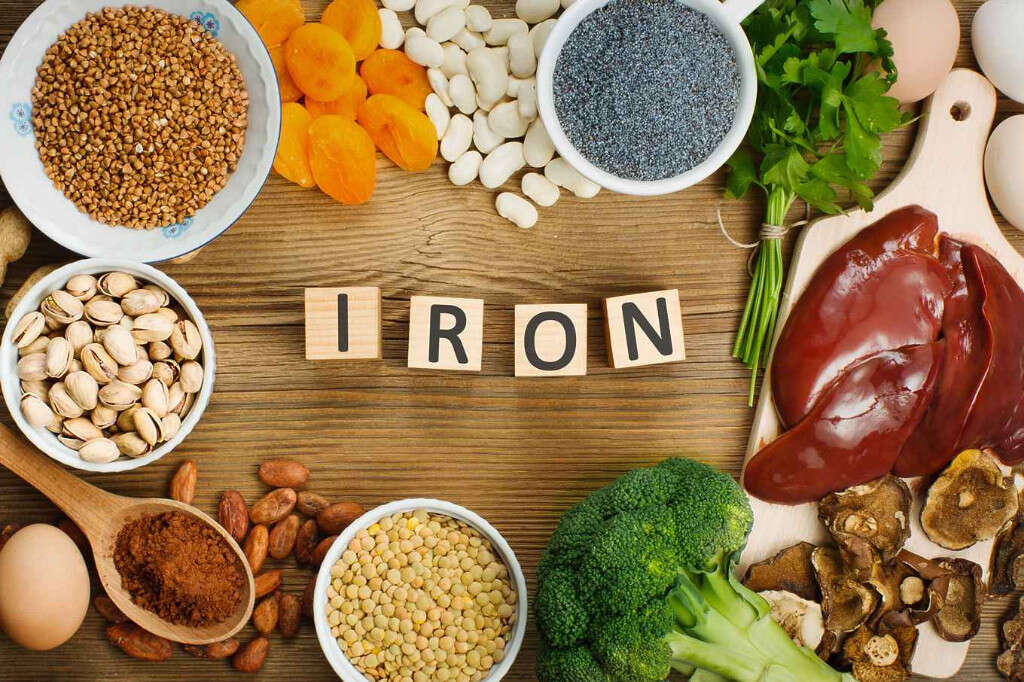10 Health Benefits of Lentils
Lentils are mini sized legumes that come in a variety of colors. This is a staple food in various cultures around the world. They are grown in pods and have a red, brown, black, or green color. Lentils are quick and easy to prepare, and they are low cost and can be stored without being refrigerated. It is popular in Indian and Middle Eastern cuisine especially being a high-protein food in vegetarian populations.
They are high in protein and high in fiber, just as the legume family usually is. Lentils also have many health benefits. They contain high amounts of iron and folate, which is an important component in hemoglobin and for our cells. There are many health benefits that lentils have on the human body.

Health Benefit Of Lentils #1: Improves Heart Health
Eating fiber has great benefits for heart health. Studies have shown that eating a diet high in fiber reduces a person’s risk of heart disease. Lentils also contain an excellent amount of folate and magnesium which contribute to good heart health.
A study regarding folate levels and the risk of fatal heart disease was assessed among women and men. It found an association of low folate levels and increased risk of fatal heart disease. This happens because folate lowers homocysteine levels, an amino acid in the blood, which is a risk factor for heart diseases. Magnesium helps keep a steady heartbeat and maintains blood pressure.

Health Benefit Of Lentils #2: Improves Digestive Health
Lentils are legumes that originated in the middle east. Most popular dishes that these fibrous legumes are used for are lentil soup, popular in Indian cuisine. Usually boiled, one cup of lentils contains about 15 grams of fiber.
Lentils are high in folate, copper, fiber, phosphorus, manganese, iron and protein. Consumption of lentils has found to be cancer-fighting, help blood pressure, lower blood sugar, and lower cholesterol levels.

Health Benefit Of Lentils #3: Control Diabetes
High fiber foods and legumes are a great component for those with diabetes as they are low in the glycemic index. Since fiber is not broken down by the body, it has no effect on blood glucose levels. According to the American Diabetic Association, it is required that adults eat about 25 to 30 grams of fiber a day. Two cups of lentils serve that recommended amount.
In one study that was done to prove the effects of lentils, blood glucose response was significantly decreased as well as cholesterol levels. Those with type 2 diabetes may want to include lentils in their diet to help control their blood sugar levels.

Health Benefit Of Lentils #4: High Plant-Based Protein
Lentils are a great source of protein. One boiled cup of lentils contains about 18 grams of protein. Protein is an important component of every cell in the human body. The body uses protein to build tissues as well as repair them. Protein makes hormones, chemicals, and enzymes. Most importantly, protein is essential to every cell in the human body.
There has been a trend in the consumption of less meat and more plant-based protein. Eating plant-based protein has shown to impact the environment better than consumption of meat. Food production in raising cattle has a negative effect on the environment.

Health Benefit Of Lentils #5: Improves Immunity
The immune system can be affected by the foods we eat. The immune system works with how the body defends against infectious organisms and other unwanted invaders. It is made up of cells, tissues, and organs that help protect the body. With a weakened immune system, a person becomes vulnerable to illnesses and disease.
Lentils are an immune boosting food. They have many nutrients and minerals that help boost the immune system. They are also a great source of thiamin, folate, iron, magnesium, phosphorus, potassium, zinc, copper, and manganese. In addition, lentils are a good source of omega-3 fatty acids which have anti-inflammatory effects.

Health Benefit Of Lentils #6: Helps In Weight Loss
Eating foods that are healthy and nutritious are key. Lentils do just that, as well as help people lose weight. Since lentils are a high fiber food, they help with the digestive tract. They promote the movement of the digestive system and increase stool production. The digestive function is essential not only to a healthy body but also in the absorption of nutrients and weight loss. Fiber helps a person lose weight and helps keep blood sugar stable.
In one epidemiologic study, consumption of high fiber with weight reduction was strongly seen. Fiber intake is associated with body weight and body fat. Increasing the consumption of fiber has shown the most impact in losing weight.

Health Benefit Of Lentils #7: Prevent Cancer
As cancer is one of the top ten leading causes of death in the United States, there are many foods that can help prevent this disease. Many types of vitamins, minerals, and phytochemicals have anti-cancer effects. There is much evidence that suggests that these nutrients that are consumed in the overall diet lead toward the strongest type of cancer protection.
A study done with lentils and their health-promoting effects demonstrated that the consumption of lentils is connected to the lower incidence of disease, obesity, and cancer. Lentils are rich in polyphenols, which have antioxidant properties against diseases.

Health Benefit Of Lentils #8: Great Source Of Folic Acid
Folic acid, also known as folate, is a type of B vitamin that is essential for metabolism, repair of DNA and RNA, and cell growth. It is extremely important for pregnant women to consume enough. Folic acid helps to prevent neural tube defects. Folic acid helps the body maintain new cells and prevent the changes to DNA that can lead to cancer and disease.
It is recommended that adults consume about 400 mcg a day, which almost equals one cup of boiled lentils. It would be easy to consume and meet this requirement with this quick and easy dish.

Health Benefit Of Lentils #9: Great Source Of Iron
Iron is extremely important for blood production. Most of the body’s iron is located in red blood cells which are known as hemoglobin. It is also located in the muscle cells called myoglobin. Hemoglobin is needed because it transfers oxygen from the blood into the lungs, then into other tissues of the body.
About one cup of cooked lentils meets about 37% of the Daily Recommended value or iron per day. Those that need to acquire the recommended amount of iron levels, and are vegetarian, should consume lentils as one of their sources. Legumes are also rich in magnesium, potassium, and folate, which makes this a highly nutritious food.

Health Benefit Of Lentils #10: Boosts Metabolism
Lentils contain a good source of vitamins including vitamin B3. Vitamin B3, niacin, helps boost the nervous and digestive system. It is a water-soluble vitamin that is absorbed when dissolved in water. This makes it effective in the digestive system and helps maintain healthy cells. Niacin may also help cholesterol control, cataracts, and osteoarthritis.
One study proved that intake of cooked legumes increased protein synthesis in the intestines and decreased them in the muscles. Protein synthesis is a biological process where individual cells in the body build specific proteins. Within these proteins are deoxyribonucleic acid (DNA) and ribonucleic acids (RNA). Proteins also carry out important functions of a cell such as chemical reactions, support, transport, and protection from harmful viruses and bacteria.












